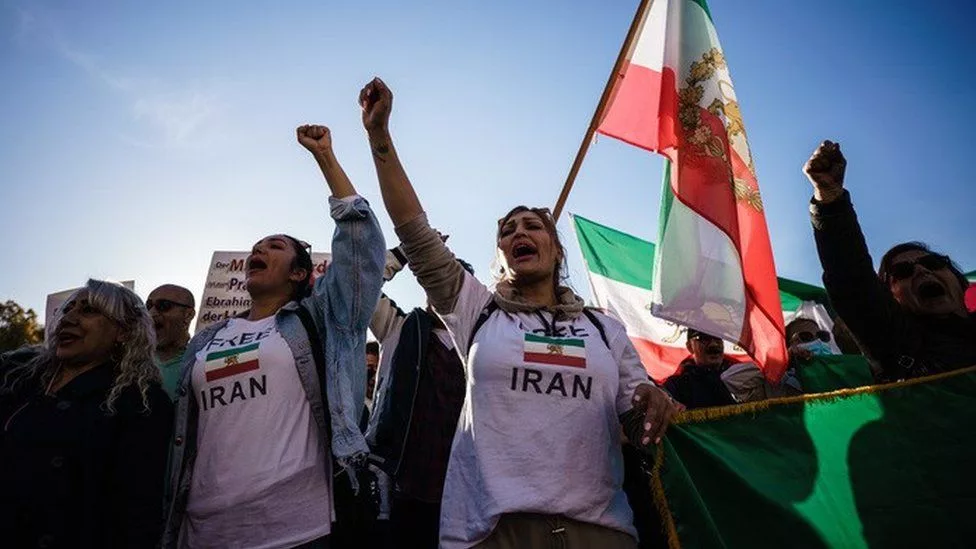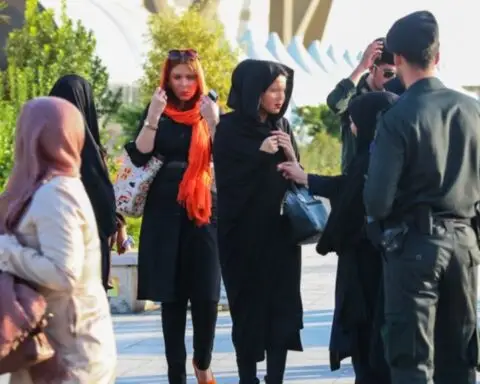WASHINGTON —Sanctions Iranian Officials -Today, the U.S. Department of the Treasury’s Office of Foreign Assets Control (OFAC) is designating three Iranian security officials for the Iranian regime’s continued crackdown on ongoing protests throughout the country, including most recently in Kurdish areas. The Iranian regime has increased its aggressive actions against the Iranian people as part of its ongoing suppression of peaceful protests against a regime that denies human rights and fundamental freedoms to its people, especially women and girls.
“The Iranian regime is reportedly targeting and gunning down its own children, who have taken to the street to demand a better future,” said Under Secretary of the Treasury for Terrorism and Financial Intelligence Brian E. Nelson. “The abuses being committed in Iran against protestors, including most recently in Mahabad, must stop.”
Today’s action is being taken pursuant to Executive Order (E.O.) 13553, which authorizes sanctions on persons who have committed serious human rights abuses involving Iran. The Islamic Revolutionary Guard Corps (IRGC) and the Law Enforcement Forces of the Islamic Republic of Iran (LEF) were both designated pursuant to E.O. 13553 in 2011 for being responsible for or complicit in serious human rights abuses in Iran since the June 2009 disputed presidential election. Both the IRGC and LEF have reportedly stifled free speech in Iran through excessive use of force, extrajudicial killings, torture, denial of medical care, and enforced disappearances of unarmed protesters, including children. The individuals being sanctioned today have acted or purported to act for or on behalf of these previously designated entities.
PROTESTS IN IRAN’S KURDISH REGION
Since countrywide protests erupted after the killing of Mahsa Amini by Iran’s “morality police” in September 2022, the Kurdish cities in northwestern Iran, such as Sanandaj and Mahabad, have faced a particularly severe security response. Residents describe a lockdown of their cities by military forces, as well as severe disruptions to key city services, including internet, phone, and even impacts to the water supply. Protests have endured, despite the Iranian security services’ intimidation tactics. In the past few days, dozens of protesters have reportedly been killed in the Kurdish region alone.
Today’s action targets key city officials of Sanandaj: Hassan Asgari (Asgari), the governor of Sanandaj, and Alireza Moradi (Moradi), the commander of LEF forces in Sanandaj. Prior to entering his role as governor of Sanandaj, Asgari was the commander of IRGC forces in Sanandaj. Asgari’s transition from a military role to governor is an example of the systematic spread of military control over cities. Moradi, as commander of the LEF in Sanandaj, has led the crackdown on protests in the city. When a 16-year-old protestor was reportedly killed by security forces in Sanandaj, Asgari and other officials stated she died of a drug overdose, potentially by suicide. Providing false alternative causes of death for protesters killed by security forces is a common tactic utilized by Iranian officials to evade accountability for their human rights abuses.
Asgari is being designated pursuant to E.O. 13553 for having acted or purported to act for or on behalf of, directly or indirectly, the IRGC. Moradi is being designated pursuant to E.O. 13553 for having acted or purported to act for or on behalf of, directly or indirectly, the LEF.
Today’s action also targets Mohammad Taghi Osanloo (Osanloo), the IRGC Ground Forces commander that oversees Iran’s West Azerbaijan province which includes the city of Mahabad. This is considered one of the IRGC’s most important commands. In recent days, the IRGC has deployed additional forces to Kurdish cities in Iran, including Mahabad, in response to the ongoing protests.
Osanloo is being designated pursuant to E.O. 13553 for having acted or purported to act for or on behalf of, directly or indirectly, the IRGC.
SANCTIONS IMPLICATIONS
As a result of today’s action, all property and interests in property of these persons that are in the United States or in the possession or control of U.S. persons must be blocked and reported to OFAC. In addition, any entities that are owned, directly or indirectly, 50 percent or more by one or more blocked persons are also blocked. OFAC regulations generally prohibit all dealings by U.S. persons or within the United States (including transactions transiting the United States) that involve any property or interests in property of blocked or designated persons.
In addition, persons that engage in certain transactions with the persons designated today may themselves be exposed to sanctions or subject to an enforcement action. Furthermore, unless an exception applies, any foreign financial institution that knowingly facilitates a significant transaction or provides significant financial services for any of the persons designated today could be subject to U.S. sanctions.
The power and integrity of OFAC sanctions derive not only from OFAC’s ability to designate and add persons to the Specially Designated Nationals and Blocked Persons List (SDN List), but also from its willingness to remove persons from the SDN List consistent with the law. The ultimate goal of sanctions is not to punish, but to bring about a positive change in behavior. For information concerning the process for seeking removal from an OFAC list, including the SDN List, please refer to OFAC’s Frequently Asked Question 897.





